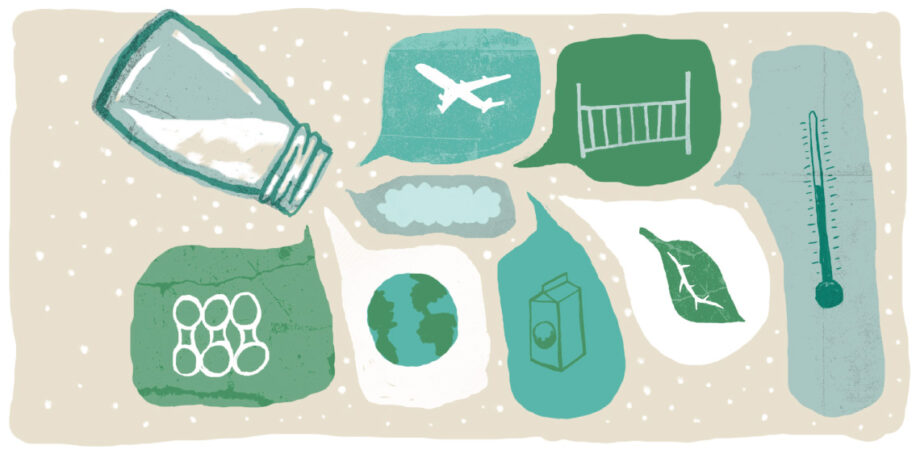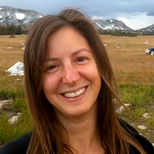Similarly, evidence for the secondhand mattress threat seemed inconclusive. The concern appeared to stem from a 1997 study that found an increased risk of death from SIDS in infants who slept on used mattresses. A follow-up study, published in 2002, found a “valid statistical association” between hand-me-down mattresses and SIDS, but cautioned that there wasn’t enough evidence to “judge whether this relation is cause and effect.”
The iodized salt was an easier call. Lack of dietary iodine can bring on cretinism, a condition that causes stunted physical and mental development and which is still a significant problem in the developing world. In the U.S., however, it’s extremely rare, particularly since most prenatal vitamins contain iodine.
It’s easy to feel that the effect of any action we do take will be pretty much zilch.
Armed with what little knowledge I could find, the precautionary principle seemed wise in all three cases. Why not simply avoid X-ray scanners, eat iodized salt and buy a new mattress? Easy enough. After all, when the potential risks are high and the effort is minimal, why not take action? Particularly when potential risks resonate on a personal level.
But therein lies the problem when it comes to climate change: Often risks don’t resonate personally and we’re being asked to make dramatic lifestyle changes. On top of that, it’s easy to feel that the effect of any action we do take will be pretty much zilch. I can reduce my carbon emissions; but unless everyone else in the U.S. and China does too, there’s little point.
With pregnancy, I’ve got a little more control. So I’ve bought a container of iodized salt, which I will use to season the food I eat while trying to decide what to do about the crib mattress. I’m on doctor-ordered travel restriction now, which keeps me out of airports. And also, conveniently, helps me to reduce my carbon emissions. ![]()
Editor’s note: The views expressed here are those of the author and not necessarily of Ensia. We present them to further discussion around important topics. We encourage you to respond with a comment below, following our commenting guidelines, which can be found here. In addition, you might consider submitting a Voices piece of your own. See Ensia’s “Contact” page for submission guidelines.
Ensia shares solutions-focused stories free of charge through our online magazine and partner media. That means audiences around the world have ready access to stories that can — and do — help them shape a better future. If you value our work, please show your support today.
Yes, I'll support Ensia!

Thanks for the post and congratulations!
I am a researcher by trade and training. Telling prenatal fact from fictitious old wives’ tale requires digging through voluminous medical journals and statistical reports.
(Example: The list of “foods to avoid” because of potential listeria contamination bears little resemblance to the list of foods that have *actually caused* listeriosis outbreaks in the past 6 years.)
So... since I have spent a considerable amount of time digging through as much science and statistical evidence as I can, I am perpetually frustrated by the "advice" I get from others.
That said, with so much mis-information floating around, and such difficulty in uncovering evidence-based analysis, it’s little wonder people stick to (often incorrect or misleading) anecdotes and headline-level “advice.”
I made a habit of fact-checking the advice (since my wife was busy enough with all of the little details of actually being pregnant), and making sure to circle back to the advisers and tell them why they were wrong or right. What amazed me is how people clung to things they had "heard" even in the face of polite but irrefutable evidence to the contrary, and even when they had no skin in the game.
And I think this, too, is something we see in climate-change denial. Accepting that humans are quite probably damaging our planet *by changing the climate* requires challenging quite a bit of what we think we know about how the world works. Like, for example, the belief that humans are so insignificant that they could never affect mighty Nature at any scale (true in small, low-tech groups -- not so true at around 7 billion individuals).
"I have resolved to not give in to other people’s hysteria."
A good thought period.
Likewise with climate change. When evidence is forthcoming that increased CO2 in the atmosphere is mainly responsible for the planet warming (which it hasn't now for a decade and a half, anyway), then I will take them seriously. In its absence I will suspect the whole thing is a scam.